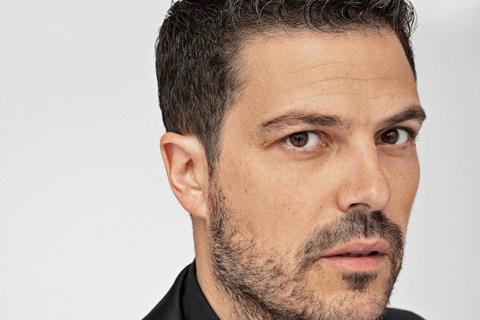
The physical spaces of the Sarajevo Film Festival (SFF) have always been an outer representation of the festival spirit ever since the first edition in 1995 emerged in a bullet-pocked city at the end of a four-year siege.
For its 31st edition, SFF is aiming to take its lively, community spirit beyond its city centre base, to venues including a picnic cinema, and a cinema within one of the city’s new swimming pools.
“We’re going into neighbourhoods outside of the city centre and trying to bring the festival atmosphere to them as well,” says Jovan Marjanovic, now entering his fourth edition as festival director since taking over from founder Mirsad Purivatra.
“The idea is to make the festival work for the general audience as much as for cinephiles – to be a community festival.”
The community ethos plays into selecting these non-cinema venues. “For every venue in the festival, there’s a group of people connected to it,” says Marjanovic. “A legendary programmer there, or maybe parties that took place there. We’re a grassroots festival in the end; all of us are from this city, and a lot of people feel that the festival is theirs.”
Marjanovic emphasises that bricks-and-mortar cinemas remain a key part of the festival; he believes the number of cinemas in Bosnia and Herzegovina has tripled in the past six years. These include the Cineplexx Sarajevo to the west of the city, on the doorstep of which is the Festival Garden meeting space, launched last year and revamped for 2025.
“This year it’s an integral part of the industry programme,” says Marjanovic. “A lot of the conference and talks are taking place there; one-to-one meetings; and there’s space for people to mill around. We hope it will be a highlight of the industry programme.”
Continuity
Fifty films will participate in Sarajevo’s four competition sections, for feature, documentary, short and student films. The nine-strong feature competition has three world premieres, including Yugo Florida, the feature debut of Serbian filmmaker Vladimir Tagic, who made his name with TV series Operation Sabre and screened 2014 short at Cannes’ Acid sidebar in 2017.
Marjanovic is proud of the industry figures he has gathered for this year’s feature competition jury, including Ukrainian director Sergei Loznitsa – whose Cannes title Two Prosecutors will play in Sarajevo’s In Focus strand – Serbian actor Dragan Micanovic, and fellow festival director Tricia Tuttle from the Berlinale. “There’s always a place for festival representatives [on the jury],” says Marjanovic.
He also likes the continuity of the other two members being winners of Sarajevo’s best film award – Ena Sendijarevic in 2019 and Emanuel Parvu last year.
Sarajevo’s cheery welcome has made it a draw for top talent over the years. For this edition Paolo Sorrentino, Stellan Skarsgard, Willem Dafoe and Ray Winstone will each greet the local audiences when receiving honorary awards, and screen a film from their work in the programme – including Cannes Grand Prix winner Sentimental Value starring Skarsgard; while DAU director Ilya Khrzhanovskiy will appear as a guest of the ’Tribute to’ programme.
All are white men aged between 50 and 75. Marjanovic says they did ask several women as honorary guests, but timing meant none were able to attend – “this is the sad thing about having to put people’s schedules together.” Gender parity is nearer among the festival films – “close to 50-50” in the competitive sections, says the director.
The festival continues its partnership with Qatar’s Doha Film Institute – for whom Marjanovic is an advisor and project mentor – through a DFI Presents programme of eight films from the Middle East. The titles are selected “through a dialogue between our organisations” says Marjanovic.
Two of the films – Kamal Aljafari’s With Hasan In Gaza and the Nasser brothers’ Once Upon A Time In Gaza – hail from the region currently under siege by Israeli military as part of its ongoing war with Hamas. On an individual level, Marjanovic wishes for “an immediate ceasefire and peace.”
The festival is “a platform to try and provide room for reflection” on such matters says Marjanovic, who notes Sarajevo’s unique capacity to do this: it was under siege in living memory, during the 1990s as part of the Bosnian war between Bosnia and Herzegovina, and Serbia.
“We know something about that and we try to share and discuss it, and have room for all the ways that art can be used as a communication tool,” says Marjanovic.
The festival director sees “an upward trajectory” of international visibility for Balkan films, citing 2025 titles such as Georgi M. Unkovski’s DJ Ahmet, winner of two awards at Sundance; and Urska Djukic’s Berlinale title Little Trouble Girls, both of which will play at Sarajevo. “We’re the biggest showcase of films from the Balkan region,” says Marjanovic of including these titles. “The festival will be there to promote these films.


